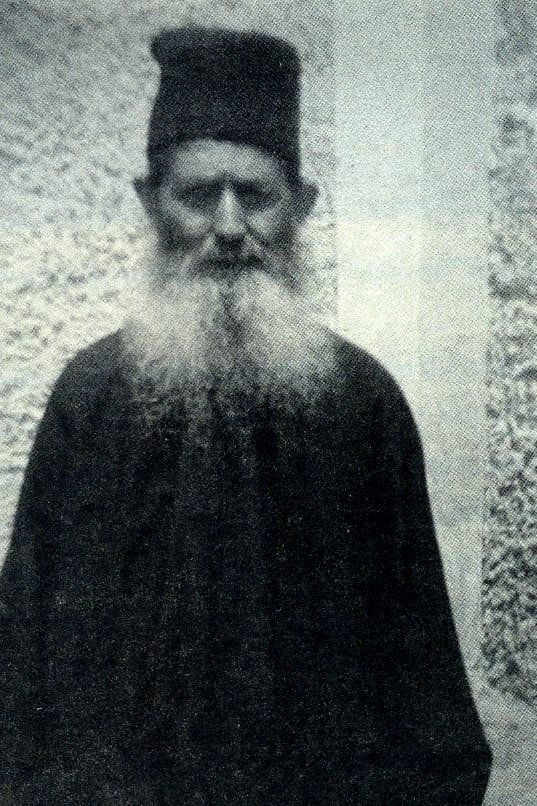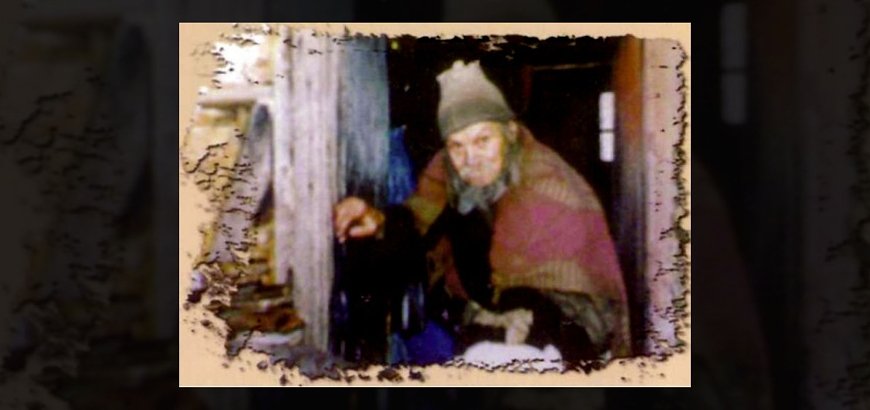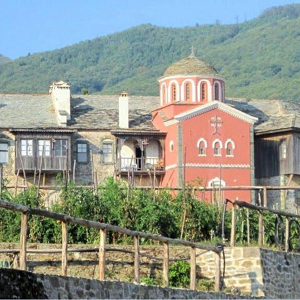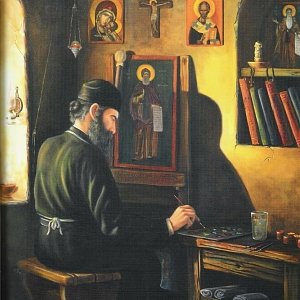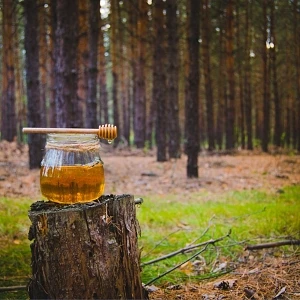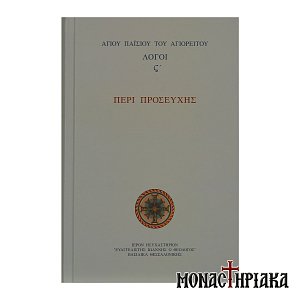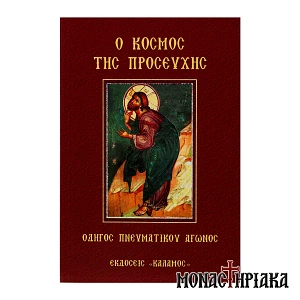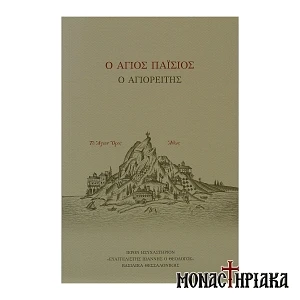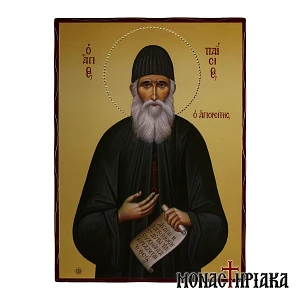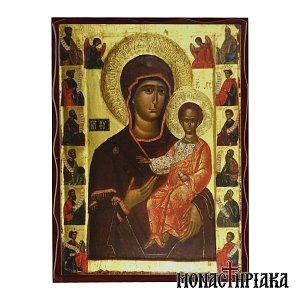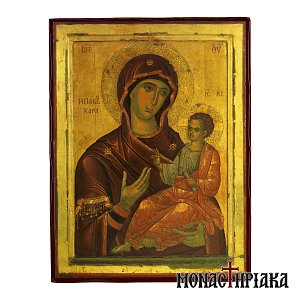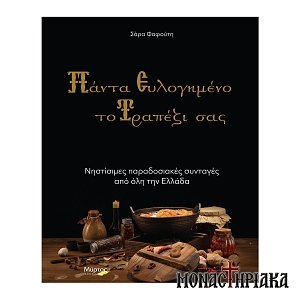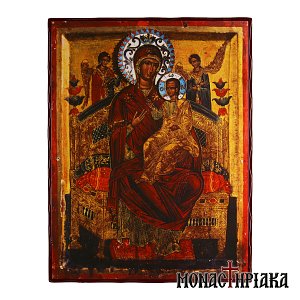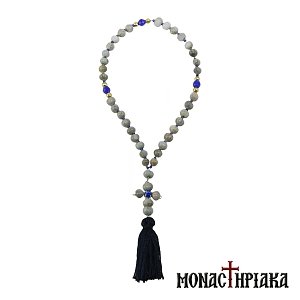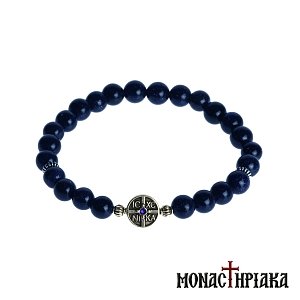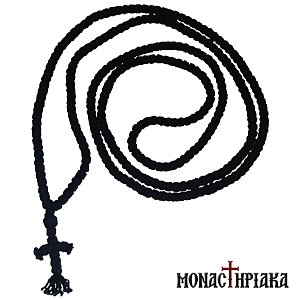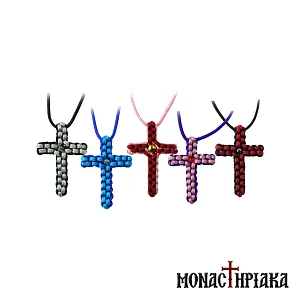Elder Irodion was born in 1904 in Romania in the province Orntasest. His father, named Peter Mantouf, his mother Helen, was poor but honest people. Peter worked in the fields, tending sheep. God gave him a son, John. It was an innocent lad and pride. Tall, stocky, with bright blue eyes. He helped his father in sheep and grew along the fields. John had a strong religious physio. It was a peaceful character. He liked to hear stories about great hermits, who lived in caves and small huts.
One day a Russian traveler stopped in their village. He was walking back from his pilgrimage to Mt. Athos. Petru, little Ion’s father, invited the wayfarer to their poor shack. The household fed the stranger, gave him hot tea to drink, and he eloquently recounted his journey with its twists and turns to them, and with tender emotion and tears in his eyes related his meeting with the Garden of the Holy Theotokos.
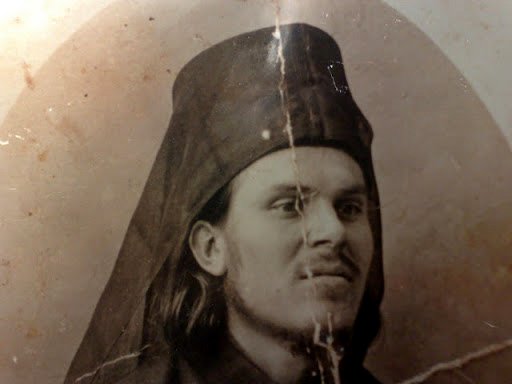
Many years passed. Little Ion grew up, but the “spark” of monastic life, ignited in his heart by that unexpected guest, glimmered on inside him. At that time a virtuous elder from Dionysiou Monastery’s Cell of the Entry of the Theotokos into the Temple was living in Romania. After meeting Fr. John (the name of that ascetic), young Ion with his parents’ blessing chose the monastic path. He came to Holy Mount Athos at the age of twenty-five.
There he began his monastic life in the Cell of the Entry of the Theotokos into the Temple; further, there is mention of the elder’s stay in Lakkoskiti, Provata, Karakallou Monastery, near Karyes, Philotheou Monastery, and Vatopedi Monastery. The cause of his wanderings was his poverty. At that time many kelliotes (monks who lived not in coenobitic monasteries, but in separately built cells, albeit not necessarily as strict hermits) had to work in different monasteries simultaneously to earn a living. They would labor in vineyards, grow and care for olive and hazel trees, till the land, and gather in the crops.
Then, the Elder thought that there was a lot of noise and he couldn’t focus on to prayer. He decided to leave the monastery and go to Kapsala, the desert of Mount Athos, in order to live alone, remote, in silence and fasting. He lived there for 40 years, perusing the words of God. He stayed there until the end of his earthly life. Elder Irodion reposed on December 12, 1990.
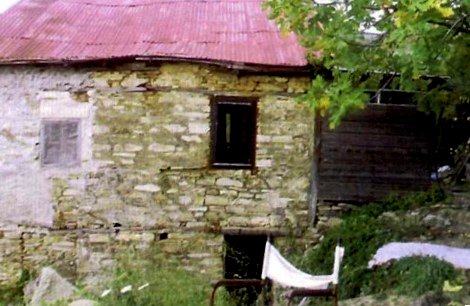
“Take this, birds!”
We went into the cell and saw a man with his long hair hanging down, wearing something strange instead of his cassock. He was sitting at the entrance, holding on to a wooden beam with both hands, leaning back against another beam. We went in. “Father, we have come to see you!” “Who has sent you?” he asked with Romanian accent. We answered “Father Paisios!” “Ah, Father Paisios, a holy man! Father Paisios, a holy man!” he exclaimed. “Yes, and he told us to bring you something to eat.” “Ah, thank you so much, Father Paisios! What has Father Paisios brought me?” he went on. Then he took a tomato and hurled it against the opposite wall: “Eat it!” Next he hurled the Papadopoulos cookies, tore open the box with the words: “Let the birds eat them!” A peach was thrown aside, too. I was observing all of this with interest, trying to fathom the reason behind his odd behavior. He scattered everything around. He tore open the packet of macaroni and dropped it on the ground: “Thank you, Father Paisios! Thank you, Father Paisios! The birds will have this! The birds will have this!” he repeated over and over again.
